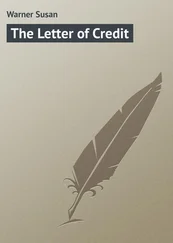Susan Warner - The End of a Coil
Здесь есть возможность читать онлайн «Susan Warner - The End of a Coil» — ознакомительный отрывок электронной книги совершенно бесплатно, а после прочтения отрывка купить полную версию. В некоторых случаях можно слушать аудио, скачать через торрент в формате fb2 и присутствует краткое содержание. Жанр: foreign_prose, foreign_children, на английском языке. Описание произведения, (предисловие) а так же отзывы посетителей доступны на портале библиотеки ЛибКат.
- Название:The End of a Coil
- Автор:
- Жанр:
- Год:неизвестен
- ISBN:нет данных
- Рейтинг книги:4 / 5. Голосов: 1
-
Избранное:Добавить в избранное
- Отзывы:
-
Ваша оценка:
- 80
- 1
- 2
- 3
- 4
- 5
The End of a Coil: краткое содержание, описание и аннотация
Предлагаем к чтению аннотацию, описание, краткое содержание или предисловие (зависит от того, что написал сам автор книги «The End of a Coil»). Если вы не нашли необходимую информацию о книге — напишите в комментариях, мы постараемся отыскать её.
The End of a Coil — читать онлайн ознакомительный отрывок
Ниже представлен текст книги, разбитый по страницам. Система сохранения места последней прочитанной страницы, позволяет с удобством читать онлайн бесплатно книгу «The End of a Coil», без необходимости каждый раз заново искать на чём Вы остановились. Поставьте закладку, и сможете в любой момент перейти на страницу, на которой закончили чтение.
Интервал:
Закладка:
The Captain of the "Achilles" made his appearance, Captain Barbour. He was a thick-set, grizzly haired man, rather short, not handsome at all; and yet with an air of authority unmistakably clothing him like a garment of power and dignity. Plainly this man's word was law, and the girls stood in awe of him. He was known to Mrs. Delancy; and now she went on to present formally all her young people to him. The captain returned the courtesy by calling up and introducing to her and them some of his officers; and then they went to a review of the ship.
It took a long while. Between Mrs. Delancy and Captain Barbour a lively conversation was carried on; Dolly thought he was explaining things to the lady that she did not understand; but though it might be the case now and then, I think the talk moved mainly upon less technical matters. Dolly could not get near enough to hear what it was, at any rate. The young lieutenants, too, were taken up with playing the host to the older young ladies of the party. If they received instruction also by the way, Dolly could not tell; the laughing hardly looked like it. She and the other young ones at any rate followed humbly at the tail of everything, and just came up to a clear view of some detail when the others were moving away. There was nobody to help Dolly understand anything; nevertheless, she wandered in a fairy vision of wonderland. Into the cabins, down to the forecastle, down to the gun deck. What could equal the black strangeness of that view! and what could it all mean? Dolly wished for her Uncle Edward, or some one, to answer a thousand questions. She had been reading about the guns, she looked curiously now at the realities, of which she had studied the pictures; recognised here a detail and there a detail, but remaining hugely ignorant of the whole and of the bearing of the several parts upon each other. Yet she did not know how time flew; she did not know that she was getting tired; from one strange thing to another she followed her leaders about; very much alone indeed, for even the other girls of her own age were staring at a different class of objects, and could hardly be said to see what she saw, much less were ready to ask what she wanted to ask. Dolly went round in a confused dream.
At last the party had gone everywhere that such a party could go; Captain Barbour had spared them the lower gun deck. They came back to the captain's cabin, where a very pleasant lunch was served to the ladies. It was served, that is, to those who could get it, to those who were near enough and old enough to put in a claim by right of appearance. Dolly and one or two more who were undeniably little girls stood a bad chance, hanging about on the outskirts of the crowd, for the cabin would not take them all in; and hearing a distant sound of clinking glass and silver and words of refreshment. It was all they seemed likely to get; and when a kindly elderly officer had taken pity on the child and given Dolly a biscuit, she concluded to resign the rest of the unattainable luncheon and make the most of her other opportunities while she had them. Eating the biscuit, which she was very glad of, she wandered off by herself, along the deck; looking again carefully at all she saw; for her eyes were greedy of seeing. Sails, – what strange shapes; and how close rolled up some of them were! Ropes, – what a multitude; and cables. Coils of them on deck; and if she looked up, an endless tracery of lines seen against the blue sky. There was a sailor going up something like a rope ladder; going up and up; how could he? and how far could he go? Dolly almost grew dizzy gazing at him.
"What are you looking after, little one?" a voice near her asked. An unceremonious address, certainly; frankly put; but the voice was not unkindly or uncivil, and Dolly was not sensitive on the point of personal dignity. She brought her eyes down for a moment far enough to see the shimmer of gold lace on a midshipman's cap, and answered.
"I am looking at that man. He's going up and up, to the top of everything. I should think his head would turn."
"Yours will, if you look after him with your head in that position."
Dolly let her eyes come now to the speaker's face. One of the young midshipmen it was, standing near her, with his arms folded and leaning upon something which served as a support to them, and looking down at Dolly. For standing so and leaning over, he was still a good deal taller than she. Further, Dolly observed a pair of level brows, beneath them a pair of wise-looking, cognisance-taking blue eyes, an expression of steady calm, betokening either an even temperament or an habitual power of self-control; and just now in the eyes and the mouth there was the play almost of a smile somewhat merry, wholly kindly. It took Dolly's confidence entirely and at once.
"You don't think you would like to be a sailor?" he went on.
"Is it pleasant?" said Dolly, retorting the question earnestly and doubtfully.
The smile broke a little more on the other's face. "How do you like the ship?" he asked.
"I do not know," said Dolly, glancing along the deck. "I think it is a strange place to live."
"Why?"
"And I don't understand the use of it," Dolly went on with a really puzzled face.
"The use of what?"
"The use of the whole thing. I know what ships are good for, of course; other ships; but what is the use of such a ship as this?"
"To take care of the other ships."
"How?"
"Have you been below? Did you see the gun decks?"
"I was in a place where there were a great many guns – but I could not understand, and there was nobody to tell me things."
"Would you like to go down there again?"
"Oh yes!" said Dolly. "They will be a good while at lunch yet. Oh, thank you! I should like so much to go."
The young midshipman took her hand; perhaps he had a little sister at home and the action was pleasant and familiar; it seemed to be both; and led her down the way that took them to the upper gun deck.
"How comes it you are not taking lunch too?" he asked by the way.
"Oh, there are too many of them," said Dolly contentedly. "I don't care. I had a biscuit."
"You don't care for your lunch?"
"Yes, I do, when I'm hungry; but now I would rather see things. I never saw a ship before."
They arrived in the great, gloomy, black gun deck. The midshipman let go Dolly's hand, and she stood and looked along the avenue between the bristling black cannon.
"Now, what is it that you don't understand?" he asked, watching her.
"What are these guns here for?"
"Don't you know that? Guns are to fight with."
"Yes, I know," said Dolly; "but how can you fight with them here in a row? and what would you fight with? I mean, who would you fight against?"
"Some other ship, if Fate willed it so. Look here; this is the way of it."
He took a letter from the breast of his coat, tore off a blank leaf; then resting it on the side of a gun carriage, he proceeded to make a sketch. Dolly's eyes followed his pencil point, spell-bound with interest. Under his quick and ready fingers grew, she could not tell how, the figure of a ship, – hull, masts, sails and rigging, deftly sketched in; till it seemed to Dolly she could almost see how the wind blew that was filling out the sails and floating off the streamer.
"There," said the artist, – "that is our enemy."
"Our enemy?" repeated Dolly.
"Our supposed enemy. We will suppose she is an enemy."
"But how could she be?"
"We might be at war with England suppose, or with France. This might be an English ship of war coming to catch up every merchantman she could overhaul that carried American colours, and make a prize of her; don't you see?"
"Do they do that?" said Dolly.
"What? catch up merchantmen? of course they do; and the more of value is on board, the better they are pleased. We lose so much, and they gain so much. Now we want to stop this fellow's power of doing mischief; you understand."
Читать дальшеИнтервал:
Закладка:
Похожие книги на «The End of a Coil»
Представляем Вашему вниманию похожие книги на «The End of a Coil» списком для выбора. Мы отобрали схожую по названию и смыслу литературу в надежде предоставить читателям больше вариантов отыскать новые, интересные, ещё непрочитанные произведения.
Обсуждение, отзывы о книге «The End of a Coil» и просто собственные мнения читателей. Оставьте ваши комментарии, напишите, что Вы думаете о произведении, его смысле или главных героях. Укажите что конкретно понравилось, а что нет, и почему Вы так считаете.












